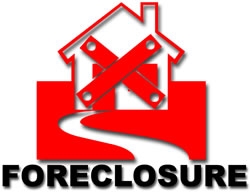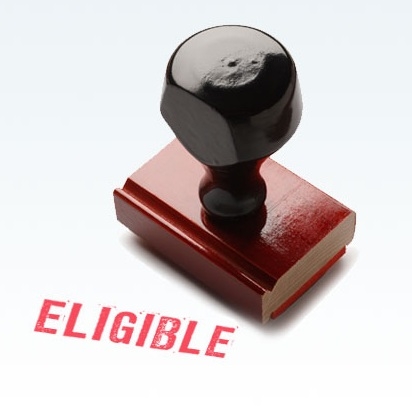
Search properties on the go. Download my free mobile app
For iOS and Android
For iOS and Android

Buyer Contact Form
Contact us about buying a home
Buyer Signs
Top 10 Signs That It's Time To Own Your Own Home
Buyer Questions
10 Questions to Ask Your Realtor about Buying a House
Agency Report
Should I Work With A Buyer's Agent? A Seller's Agent? A Dual Agent?
Easy Move
How to Make Your Move Easier on Your Family
Mortgage
Financial Mortgage Calculator
A HUD (Department of Housing and Urban Development) home is a 1 to 4 unit residential property acquired by HUD as a result of a foreclosure action on an FHA insured mortgage. HUD becomes the property owner and offers it for sale to recover the loss on the foreclosure claim.
***LaTanya Rowe is a HUD-approved real estate agent for Virginia and Maryland. (most real estate agents are not) She can show you a HUD property and assist you in making an offer. HUD employees do not work with home buyers--you must use an approved real estate agent.***
HUD homes are appraised, then priced at a competitive fair market value. The price of a home in need of repairs is adjusted downwards to reflect the investment the new owner must make to improve the home. HUD homes are sold as-is. The new owner is responsible for all repairs and improvements. The buyer should absolutely hire a professional home inspector to assist with their purchase decisions.
Click for more information on Buying HUD homes.
HUD homes are appraised, then priced at a competitive fair market value. The price of a home in need of repairs is adjusted downwards to reflect the investment the new owner must make to improve the home. HUD homes are sold as-is. The new owner is responsible for all repairs and improvements. The buyer should absolutely hire a professional home inspector to assist with their purchase decisions.
Click for more information on Buying HUD homes.
There are certainly many great deals when purchasing a foreclosed home. Just keep in mind that you need to read all paperwork, keep in mind all contingency deadlines and do your due diligence when dealing with a bank.
Condition
With a foreclosure, you're not buying the house directly from the person who owned it. You are buying it from the bank that foreclosed on the previous owner.
When owners realize they are about to lose their home through foreclosure, it's not uncommon for them to stop caring about the home. The owner might have hard feelings toward the bank and therefore might feel justified in damaging the property before leaving. If something breaks or malfunctions, they aren't going to fix it. If they are angry enough, they might actually flood the home, plug the drains, smash out walls and pull out copper pipes or electrical wiring. They might sell all of the appliances, countertops or cabinets.
Disclosures
Again, the home is owned by the bank. There are no disclosure documents that inform you about the history of the home's major systems, roof, plumbing, etc... You are going into the purchase of the foreclosure blindly. This is why a professional home inspection is always recommended. In most cases, the bank is not going to make repairs. You, the buyer will be responsible for any fixes. Therefore, make sure you account for any missing fixtures, features and appliances in your purchase offer to the bank.
The Bank's Own Interest
The bank usually has its own set of contract addenda which supersedes and replaces all previous contract addenda from the normal contracts used from the local board of Realtors. These bank addenda protect its own interests from future lawsuits, referring to the sale as "as-is", allowing for transfer of the property only in certain ways and putting almost all the burden on you, the buyer.
Search foreclosures
Help me buy a foreclosure
With a foreclosure, you're not buying the house directly from the person who owned it. You are buying it from the bank that foreclosed on the previous owner.
When owners realize they are about to lose their home through foreclosure, it's not uncommon for them to stop caring about the home. The owner might have hard feelings toward the bank and therefore might feel justified in damaging the property before leaving. If something breaks or malfunctions, they aren't going to fix it. If they are angry enough, they might actually flood the home, plug the drains, smash out walls and pull out copper pipes or electrical wiring. They might sell all of the appliances, countertops or cabinets.
Disclosures
Again, the home is owned by the bank. There are no disclosure documents that inform you about the history of the home's major systems, roof, plumbing, etc... You are going into the purchase of the foreclosure blindly. This is why a professional home inspection is always recommended. In most cases, the bank is not going to make repairs. You, the buyer will be responsible for any fixes. Therefore, make sure you account for any missing fixtures, features and appliances in your purchase offer to the bank.
The Bank's Own Interest
The bank usually has its own set of contract addenda which supersedes and replaces all previous contract addenda from the normal contracts used from the local board of Realtors. These bank addenda protect its own interests from future lawsuits, referring to the sale as "as-is", allowing for transfer of the property only in certain ways and putting almost all the burden on you, the buyer.
Search foreclosures
Help me buy a foreclosure
A short sale means the owner owes more to the mortgage lender(s) than the amount the house is worth. The owner can accept your offer to purchase the home but must also obtain the mortgage lender(s) approval of the sales price before actually selling the house to you.
Condition
The notion here is that the owner has a financial hardship and therefore, must sell the home because they cannot maintain the mortgage payments. Hence, the owners sell their house "as-is". There is no money to neither repair the home nor buy the buyer a home warranty. The buyer should reflect this in their initial purchase offer price to the owner.
The Short Sale Process
The Short Sale process is entirely unpredictable. It can take on average 60-90 days to obtain approval from one lender. Add another 30-45 days if there are two lenders involved. Plus, after approval is received from all lenders, you'll need an additional 30 days for your home inspection, appraisal and for your lender to process your own loan. In total, allow between 90-165 days to get to settlement. Patience is key!
The Seller's Agent Plays a Major Role
Most real estate agents and most mortgage brokers are not knowledgeable in short sales and do not have the experience necessary to move along the short sale transaction quickly and efficiently. Short Sales are time intensive transactions that require detail-oriented processing in order to get the job done right. Honestly, follow-up with your file and correspond with lenders should occur several times every week in order to stay on top of the job.
Some agents make the mistake of trying to negotiate the short sale themselves. He/She could and probably will make mistakes, give up, slack off or drop the ball during the short sale process. Many agent and sellers hire a lawyer or title company who has full time negotiators to process the short sale. This greatly increases your odds of getting to settlement. Inquire if the seller's agent has hired a real estate lawyer or title company. It will eliminate majority of the headaches you would have encountered otherwise.
Help me buy a Short Sale
The notion here is that the owner has a financial hardship and therefore, must sell the home because they cannot maintain the mortgage payments. Hence, the owners sell their house "as-is". There is no money to neither repair the home nor buy the buyer a home warranty. The buyer should reflect this in their initial purchase offer price to the owner.
The Short Sale Process
The Short Sale process is entirely unpredictable. It can take on average 60-90 days to obtain approval from one lender. Add another 30-45 days if there are two lenders involved. Plus, after approval is received from all lenders, you'll need an additional 30 days for your home inspection, appraisal and for your lender to process your own loan. In total, allow between 90-165 days to get to settlement. Patience is key!
The Seller's Agent Plays a Major Role
Most real estate agents and most mortgage brokers are not knowledgeable in short sales and do not have the experience necessary to move along the short sale transaction quickly and efficiently. Short Sales are time intensive transactions that require detail-oriented processing in order to get the job done right. Honestly, follow-up with your file and correspond with lenders should occur several times every week in order to stay on top of the job.
Some agents make the mistake of trying to negotiate the short sale themselves. He/She could and probably will make mistakes, give up, slack off or drop the ball during the short sale process. Many agent and sellers hire a lawyer or title company who has full time negotiators to process the short sale. This greatly increases your odds of getting to settlement. Inquire if the seller's agent has hired a real estate lawyer or title company. It will eliminate majority of the headaches you would have encountered otherwise.
Help me buy a Short Sale













